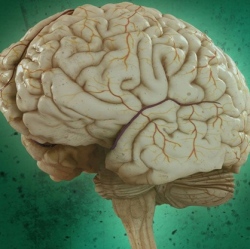
Noninvasive brain scans, such as functional magnetic resonance imaging, have led to basic science discoveries about the human brain, but they’ve had only limited impacts on people’s day-to-day lives. Recent studies show that brain imaging can help predict an individual’s future learning, criminality, health-related behaviors, and response to drug or behavioral treatments.
The technology may offer opportunities to personalize educational and clinical practices. Dr. John Gabrieli of the Massachusetts Institute of Technology in Cambridge and his colleagues describe the predictive power of brain imaging across a variety of different future behaviors, including infants’ later performance in reading, students’ later performance in math, criminals’ likelihood of becoming repeat offenders, adolescents’ future drug and alcohol use, and addicts’ likelihood of relapse.
"Presently, we often wait for failure, in school or in mental health, to prompt attempts to help, but by then a lot of harm has occurred," says Dr. Gabrieli. "If we can use neuroimaging to identify individuals at high risk for future failure, we may be able to help those individuals avoid such failure altogether."
